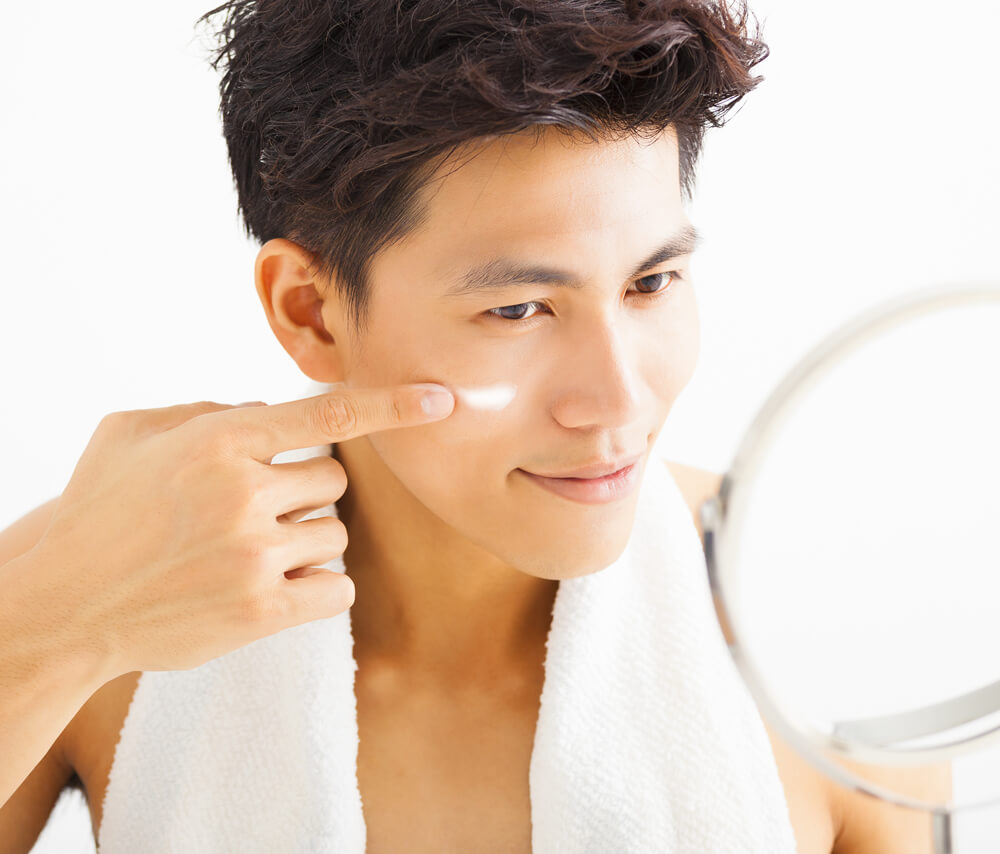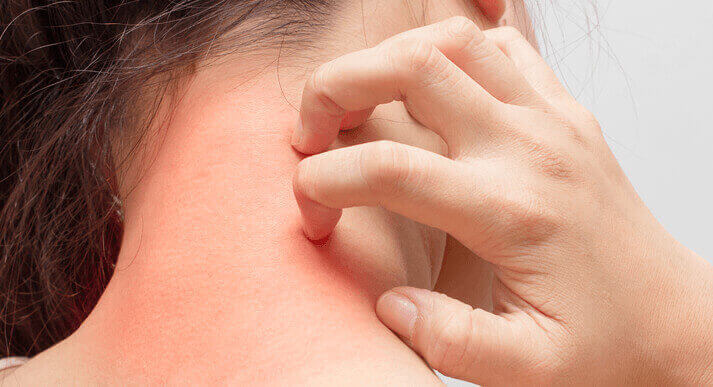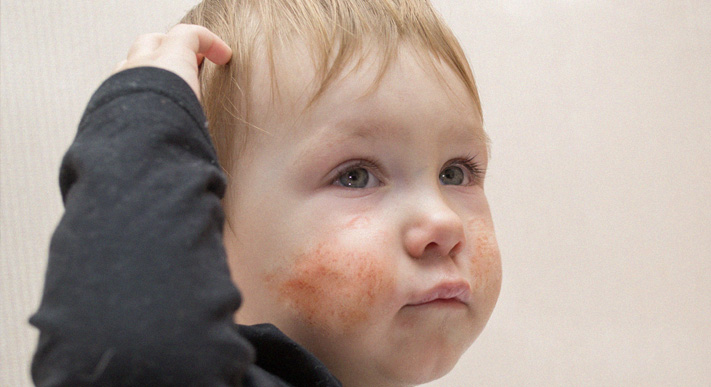Treatment : See a dermatologist if your condition worsens or lasts more than a few weeks even after using over-the-counter
products. Early medical treatment prevents dark marks and lasting scars that are difficult to treat. It's best
to continue the use of prescription topical agents such as retinoids (adapalene or tretinoin) even after your
acne problem has cleared up to prevent a relapse. While these prescription medications have been the mainstay of
acne treatment, there are newer topical medications that are non-antibiotic and therefore have less risk of
treatment resistance, as well as MiXto fractional CO2 laser and intensepulsed light to combat acne marks and
scars.
Seborrhoeic dermatitis is a condition that mainly affects the scalp. It causes red, scaly
patches and leaves a trail of dandruff. It can also affect the oily areas of the body, such as the central part
of the face, sides of the nose, eyebrows, ears, eyelids and chest. As it occurs more frequently in men, some
researchers think male hormones may play a role.
Treatment : Men with seborrhoeic dermatitis on the scalp can use an over-the-counter
shampoo containing ketoconazole, coal tar or salicylic acid, or a prescriptionstrength medicated
shampoo. For the face and body, one should keep the affected areas clean by washing with a gentle
cleanser every day. Treatment includes nonsteroidal cream such as SebclairTM, which is a specific
anti-seborrhoeic dermatitis cream.
Fungal infections like jock itch are more common in men. These infections occur
mainly because of moisture and irritation that promote fungal overgrowth. Using talcum power in the
groin before sports may help prevent infection.
Treatment : Antifungal products are commonly prescribed. Although seemingly counterintuitive, men appear to have more sensitive skin compared to women. A study involving male and female mice highlighted that male skin cells carry fewer antioxidants than female skin cells, which makes them more sensitive to ultraviolet rays.
Treatment : See a dermatologist for a proper dermatological assessment. A dermatologist will then be able to advise you and prescribe the appropriate treatment and products to prevent worsening of your skin's condition.
Skin Care Tips
Prevention is better than cure, so taking good care of your skin will help prevent or minimise the
above conditions. Most men tend to over-wash their face due to oiliness. Instead, they should use
mild cleansers and follow up with moisturisers formulated for their skin type. For oily, acneprone
skin, a non-comedogenic facial moisturiser that will not clog the pores is recommended, while a
moisturiser with hyaluronic acid will help lock in moisture for those with dry skin. One should
always use a sunscreen when outdoors.
Choosing A Dermatologist
Dermatologists specialise in skin and hair conditions, and are trained to evaluate and treat a range
of such issues. If you are plagued by hair or skin problems, it is advisable to see a dermatologist
rather than self-prescribing so that the appropriate treatment can be drawn up and the condition
nipped in the bud.








